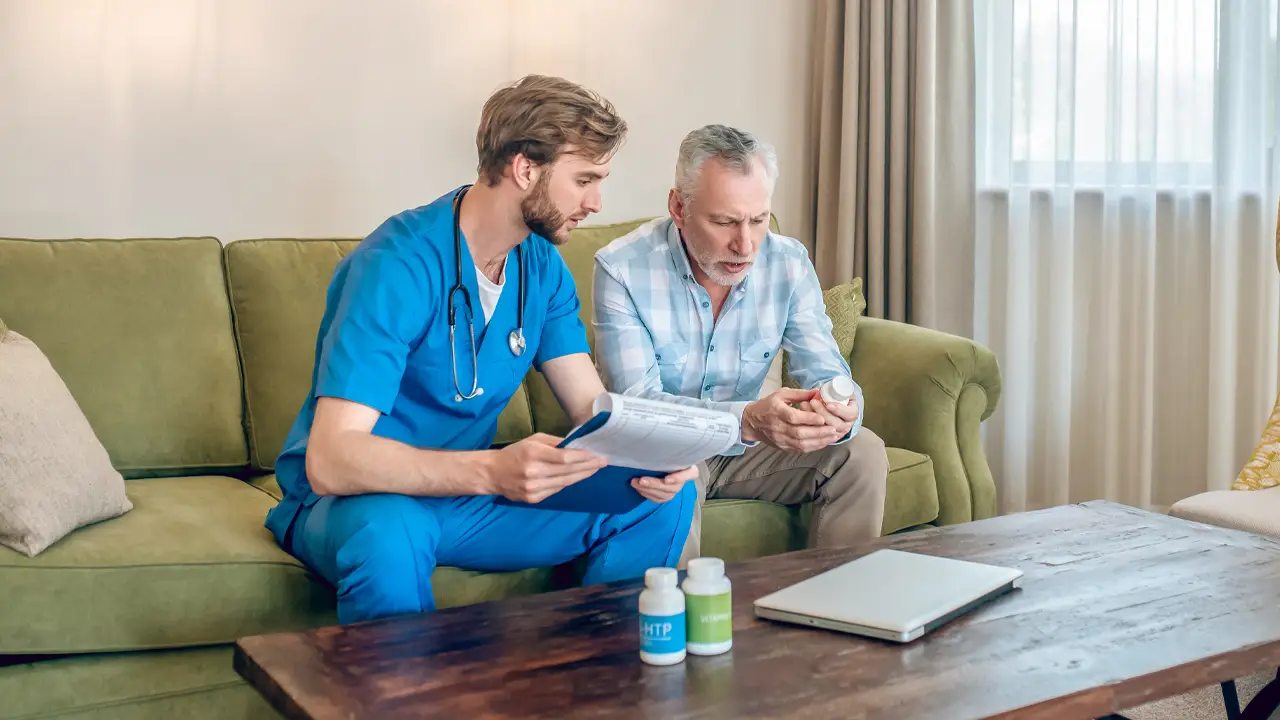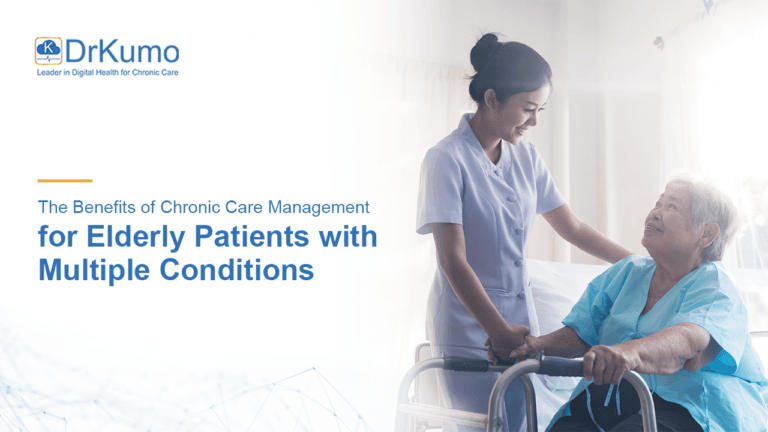In healthcare, medication non-compliance is a prevalent problem, particularly for patients with chronic illnesses. Failure to follow the prescribed medication regimen can result in deteriorating health conditions, hospitalization, and increased healthcare expenses. Adherence rates are often low, with studies showing that medication is taken as prescribed only 50% of the time. This non-adherence has been linked to 30-50% of chronic disease treatment failures and 125,000 annual deaths in the United States. However, the rise of remote patient monitoring (RPM) and advances in technology present new opportunities to improve medication adherence and enhance patient outcomes.
In this blog post, we will explore the causes and impacts of medication non-compliance, discuss strategies and technology, including RPM to boost medication compliance. We will also highlight the crucial role of healthcare providers (HCPs) in promoting medication adherence.
Reasons for Medication Non Compliance
There are numerous reasons why many patients may not adhere to their medication plan. Some of the most common reasons include:
- Forgetfulness or confusion about dosing schedules.
- Side effects or other negative experiences with the medication.
- Feeling that the medication is not helping or not necessary.
- Financial barriers or difficulties obtaining the medication.
- Language barriers or low health literacy.
- Negative beliefs or attitudes about medication or the health care system.
To improve medication adherence, it is important to understand the underlying reasons why patients may not be taking their medication as prescribed.
Impact of Medication Non-Adherence
Non-adherence to medication can have severe consequences on a patient’s health and quality of life, which can lead to increased healthcare costs. Here are some specific impacts of non-compliance of medication:
- Disease Progression: Failure to adhere to a medication regimen can cause chronic diseases such as hypertension, diabetes, and heart disease to progress, leading to more severe health complications.
- Increased Risk of Hospital Admissions: Non-adherence can result in more frequent hospital admissions, longer hospital stays, and the need for more complex medical interventions.
- Medical Complications: Non-adherence can lead to medical complications such as drug resistance, medication interactions, and adverse side effects.
- Higher Morbidity and Mortality Rates: Non-adherence can lead to worsening health conditions, leading to increased morbidity and mortality rates.
- Reduced Quality of Life: Non-adherence can lead to reduced quality of life, including increased pain, decreased mobility, and reduced overall health.
Strategies to Improve Medication Adherence Outcomes
Improving medication adherence outcomes can be achieved through various strategies, including the following:
- Utilizing reminders: Patients can enhance their adherence to medication regimen by setting reminders, such as phone alarms, or by using medication reminder apps.
- Simplifying dosing schedules: Health professionals can work collaboratively with patients to simplify their medication dosing schedules by reducing the frequency of daily doses or switching to a medication with a more extended duration of action.
- Addressing side effects: HCPs can assist patients in managing medication side effects by adjusting the dose or switching to a different medication.
- Educating patients: Educating patients about the importance of taking their medication as prescribed, and the potential consequences of non-adherence, can encourage them to adhere to their medication regimen.
- Medication synchronization: Patients can synchronize their medication refills to ensure a sufficient supply of medication and avoid missed doses.
- RPM solutions: HCPs can remotely monitor patients to ensure they take their medicine as prescribed and provide additional support and education to improve medication adherence.
By adopting these strategies, patients can improve their medication adherence outcomes, which can lead to better health outcomes and overall well-being.
Technology for Medication Management
Technology can also be used to improve medication management and adherence. Some examples include:
- Medication reminder apps: There are several apps available that can send reminders to patients to take their medication.
- Pill dispensers: Pill dispensers can help patients organize their medication and ensure they take the correct dose at the right time.
- Electronic prescription refills: Electronic prescription refills can help patients avoid running out of medication and reduce the need for in-person visits to the pharmacy.
- RPM technology: RPM enables patients to receive medication management support and connect virtually with their healthcare professionals from the convenience of their own home.
Role of Healthcare Providers in Medication Adherence
HCPs have a crucial role to play in ensuring patients adhere to their prescribed medications and treatment plans. To achieve this, there are several ways that HCPs can provide support to patients.
- Communicating with patients clearly: Clear communication is crucial for patients to understand their prescribed medications, the therapeutic plan, and potential side effects. This understanding enables patients to appreciate the significance of adhering to the medication plan and the repercussions of non-adherence to the treatment plan.
- Addressing patient concerns: Addressing patients’ fears and concerns and finding a medication schedule that suits their needs and lifestyle is critical to promoting medication adherence. Collaboration between patients and healthcare professionals can improve the likelihood of medication adherence.
- Monitoring patient progress: Close monitoring of patient progress and timely adjustments of the medication regimen, if necessary, are crucial to ensure patients are following their care plan effectively.
- Providing patient education: Patient education on the significance of medication adherence and the potential consequences of non-compliance is crucial. Patients need to comprehend that taking their prescribed medications as directed is critical to their health and wellbeing.
- Subscribing to an RPM program: The RPM program enables remote monitoring of patients and adjusting their treatment plans as necessary. This program is particularly beneficial for patients who cannot attend regular appointments in person.
In addition, HCPs should be aware on how to handle medical non compliance in elders, as this population may face unique challenges that affect their medication adherence. It is crucial to approach non-adherence in a patient-centered manner, taking into account factors such as cognitive decline, functional limitations, and social support. By identifying and addressing these underlying issues, healthcare professionals can help elderly patients overcome barriers to medication adherence and improve their health outcomes and overall well-being.
Medication Adherence Through DrKumo Remote Patient Monitoring
DrKumo RPM technology solution is an advanced and secure mobile-enabled system that has revolutionized healthcare delivery. It provides real-time monitoring of patients’ medication adherence and other health conditions, making it easier for HCPs to intervene in a timely manner. This state-of-the-art technology is HIPAA-compliant and uses an AI/ML engine to solve the most painful problems in healthcare, making it a leader in scalable RPM solutions for chronic disease management, acute care, post-operation, and hospital care at home.
By leveraging DrKumo RPM technology, patients with chronic conditions can easily manage their health conditions from the comfort of their homes, while HCPs receive real-time intelligence to take timely actions. These actions include: (a) ensuring patients take their medication on time; (b) reducing the risk of hospital admissions; and (c) improving the overall health results for patients. With the ability to improve adherence, healthcare costs are reduced, and patient health outcomes are improved. DrKumo user-friendly RPM solution is an effective tool for medication management, which leads to better patient health results and an overall improvement in the quality of life.
Conclusion
Medication non-compliance is a significant issue that negatively impacts patient health and increases healthcare costs. Health professionals play a critical role in supporting medication adherence, and there are several strategies and technologies available to improve it. RPM technology solution is a game-changer as it allows real-time monitoring and timely intervention. Patients and health professionals can collaborate through RPM technology to enhance medication adherence and improve patient health outcomes. With RPM’s support, patients can benefit from timely intervention, leading to better health results.
Contact DrKumo today to learn more about how RPM technology can assist patients with medication management and improve medication adherence.








